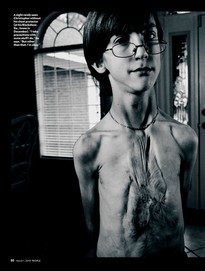Has it really been a year since parents Kim and Michael Illions initiated a national awareness campaign for pediatric hydrocephalus? Through the Pediatric Hydrocephalus Foundation, which they founded and direct, support chapters have been developed in New Jersey and Pennsylvania, and as more and more parents come aboard, so too will more and more support opportunities for families dealing with congenital or pediatric hydrocephalus. Kudos to Kim and Michael who are really making a difference not only for their own son, Cole, but for all the babies born with this serious condition.
Visit the PHF blog here. Pictured is a New Jersey flagraising event to commence National Hydrocephalus Awareness Month! Contact the Illions for ideas of how to commorate the cause in your area.
If you are already in (or plan to be in) the DC area in early October, you are welcome to attend this event, which will focus on issues surrounding prenatal diagnosis and how we can effectively serve the needs of the couples going through this type of experience. In addition, we will discuss how prenatal diagnosis should be of more concern to disability communities, and the Church at large. If you are unable to attend the recording of the event live, the webinar will be available on the National Catholic Partnerhsip on Disability website. I will be there and would love to meet anyone who reads the blog, parents who have special needs or medically fragile children, or just anyone who cares about how these issues play out in our culture, in our Church, and in our policy. Hope to see you there!
This lovely video of a few moments from a recent Bocelli concert is making the rounds, so I thought we should post it here too. The medical details are very sparse – it’s not clear how the treatments he describes would lead to such a draconion suggestion from the doctors, but it doesn’t matter. It was the story he was told, and whatever the actual details, it’s clear that his mother resisted having an abortion . . . and aren’t we all so blessed that she did!






